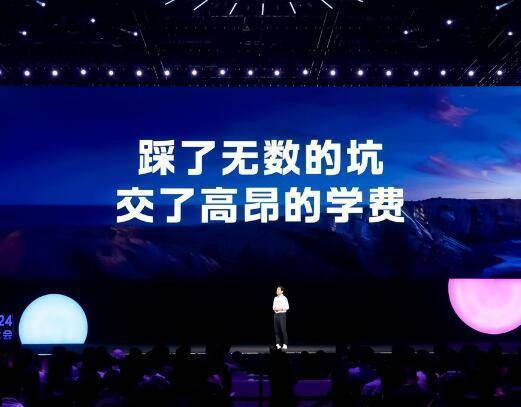Baidu CEO Li Yanhong Announces Release of WENXIN Large Model 4.0 Tool Edition at Create 2024 Baidu AI Developer Conference
On April 16th, Baidu’s founder, chairman, and CEO, Li Yanhong, officially announced the release of the tool version of the WENXIN Large Model 4.0 at the Create 2024 Baidu AI Developer Conference.
Li Yanhong stated that compared to a year ago, the algorithm training efficiency of the WENXIN Large Model has increased by 5.1 times, with a weekly average training efficiency reaching 98.8%. In addition, the inference performance has improved by 105 times, and the cost of inference has dropped to 1% of its original value. “In other words, if a customer used to make 10,000 calls in a day at the same cost, now they can make 1 million calls in a day.”
Furthermore, Li Yanhong shared Baidu’s specific strategies and tools developed over the past year for creating AI native applications during his speech. He emphasized that the large language model itself does not directly create value; it is the AI applications developed based on these large models that can meet real market demands.

Li Yanhong first mentioned that in the future, most large AI native applications will be based on MoE. He explained: “Here, MoE refers not to the general academic concept but to the hybrid use of large and small models, not relying on a single model to solve all problems.”
Next, Li Yanhong pointed out that small models have low inference costs and fast response times. In specific scenarios, finely tuned small models can be as effective as large models. This is why Baidu released ERNIE Speed, ERNIE Lite, and ERNIE Tiny, three lightweight models. “Through large models, we distill a basic model through ‘distillation’ and then train it with data. This approach results in better performance compared to training small models from scratch. It outperforms models trained based on open-source models in terms of efficiency, speed, and cost reduction,” he explained.
The third point is about Intelligent Agents. Li Yanhong mentioned that “Intelligent Agents” is currently a hot topic. With the improvement of intelligent agents’ capabilities, a large number of AI native applications will continue to emerge. The mechanism of intelligent agents includes understanding, planning, reflection, and evolution, enabling machines to think and act like humans. They can autonomously complete complex tasks, continuously learn in the environment, achieve self-iteration, and self-evolution. “In complex systems, we can enable different intelligent agents to interact, collaborate, and complete tasks with higher quality. We have developed these intelligent agent capabilities and are fully open to developers,” Li Yanhong elaborated.
Original title: Li Yanhong Releases WENXIN Large Model 4.0 Tool Edition, Reducing Inference Costs to 1% of a Year Ago.